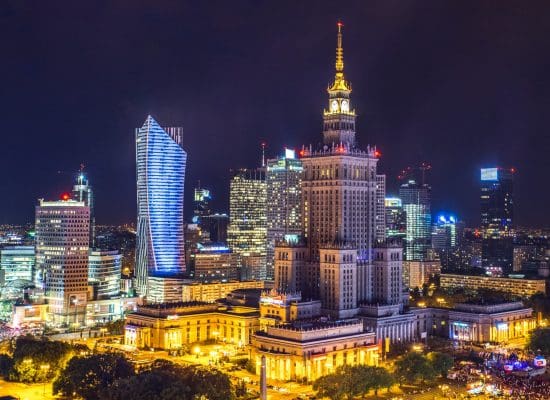Post photo: Crumbling European flag | © Shutterstock
This post was also published on the Website of the Europa-Union Germany published.
Emmanuel Macron started his first presidency with a grand gesture for a stronger Europe. That had raised hopes among us European federalists. He was the candidate of a democratic, European France. In the second ballot, he prevailed against the ultra-right opponent of a united Europe. Many Germans were afraid of Marine Le Pen, perhaps felt some satisfaction at finally standing on the right side of history when some feared their election victory. It was a cathartic moment, a particularly German moment, which incidentally founded Pulse of Europe.
Six years later, Macron, now in his second term, is enormously weakened domestically. His movement hardly seems capable of winning a majority. And the parties that once supported the 5th Republic are only a shadow of themselves, splinter parties threatened with further division. Strong, and perhaps stronger than ever, is the Rassemblement National Le Pens, long-eating chalk and similar in spirit to her sister, the Italian Prime Minister Giorgia Meloni, recently even with positive statements about Europe. Le Pen, a she-wolf in sheep's clothing like the Italian neo-fascist, remains the greatest French threat to Europe, with the left-wing tribune of the people Jean-Luc Mélenchon is no friend of Europe, which he scathingly castigates as l'Europe de Maastricht and thus a capitalist conspiracy.
Compared to the strongest forces in the opposition, Macron still appears as a European luminary. Nevertheless, Macron's idea of Europe is also dangerous. Macron was able to Ursula von der Leyen to have a German as Commission President, because that secured France the presidency of what he saw as the more important European Central Bank. In return, von der Leyen did Macron the favor of adopting his idea of a strategically autonomous Europe. The Commission has been zealously promoting this dazzling concept ever since. Macron's party family, with the programmatic name Renew Europe, is not alone in defending strategic autonomy. It finds a broad consensus across party lines and has almost become a Holy Grail in Brussels.
So far, many European politicians have had very different understandings of strategic autonomy. Most described the idea as a more capable Europe. And who would disagree? With the exception of opponents of European unification, no one doubts that the EU must become more capable of acting. Since the Russian invasion of Ukraine, the idea of greater independence has been added. This can also be combined with the vague and therefore particularly compatible offer of strategic autonomy. In fact, the idea of strategic autonomy is not very original and even less new.
What Macron is propagating with the strategic autonomy of Europe is pure Gaullism. Some of the French elite, including Macron, see Brexit as an opportunity to assume a new leadership role in Europe. Macron sees France as a Grande Nation and at least on an equal footing with the USA, from which France traditionally feels challenged, although it was essentially the Americans who liberated the Hexagon from the Germans and who incidentally also supported the politicians of the 4th Republic reconciliation with West Germany and thus made a significant contribution to European unification.
However, Macron's idea of Europe is now shaped by the idea, which seems plausible at first glance after the irritating Trump years, that Europe must emancipate itself from the Americans. The latter oriented anyway away from the Atlantic towards the Pacific. The strategic autonomy therefore means an equidistance to the USA and to China. As the third pole, Europe should seek and find happiness. Many apologists for strategic autonomy have argued in recent years that this is at least an over-, if not a misinterpretation of Europe's strategic autonomy. Of course, the EU must remain closely linked to the USA, but become more independent of them as well as of all other powers.
However, the interviews given by the French President in connection with the escalating Taiwan conflict show that the interpretation of strategic autonomy as anti-American policy was not a misinterpretation. France wants to separate Europe from the United States. Macron had already described NATO, which is essentially based on the US protection guarantee, as brain dead in 2019 and thus basically agreed with Trump, who had described NATO as obsolete. Now Macron argues that the freedom of the democracies in the Pacific region does not concern Europe. Europe must not become an appendage of the United States, which allows itself to be drawn into its conflict with China, which is not a European conflict. German politicians, who were politically socialized with an anti-American attitude, jump in and join him enthusiastically.
Such an understanding of strategic autonomy or European sovereignty is dangerous and surprising, because Europe's security is currently under acute threat and, alongside the brave Ukrainians, it is above all the USA who have prevented a Ukrainian defeat so far. The latter would mean the end of Ukraine and make a victorious Russia, which avowedly wants to restore its old Soviet dominion, an existential threat for at least Central Eastern Europe. American reactions to Macron's statements are less surprising. While the Biden administration wonders what it did to deserve this, large sections of Republicans see their chauvinistic isolationism confirmed. Let the Europeans deal with Russia on their own. Depending on your perspective, the attack on Ukraine can also be seen as a regional conflict, as can the Chinese threat to Taiwan.
The French view of Taiwan is also astonishing because an open war over the island would have more devastating consequences for the global economy and thus also for European companies and jobs, and even for the general supply of goods in Europe than the current Ukraine war. Europe must have a vital interest in ensuring that trade routes in Asia remain open and that a rule-based world order is defended in the Formosa Strait as well as in Eastern Europe.
It remains undisputed that Europe must become more capable of acting, above all by further abolishing the veto right of the member states, and that it must reduce its dependencies through diversification. Germany in particular is currently doing far too little for this. The latest statistics show that the German economy is increasingly dependent on China. However, Europe does not have to become independent of its partners and friends in the world, but to the contrary seek to strengthen mutual dependencies! The USA also needs a free Europe. If the EU would gradually break up and some of its members would become Russian satellites and all of them, including Russia, which was increasingly dependent on China, Europe's post-war values would be history.
Macron and France, bolstered by their confidence in being a nuclear power, harbor dangerous illusions about Europe's role in the world. In the 1990s, Europe was unable to stop the Serbian aggressor on its own. It had almost no constructive impact on the Middle East and North Africa after the failed Arab Spring. That American interventions have wreaked havoc here is true. The gradual withdrawal of the Americans from the Near and Middle East has made this even bigger and is in no way compensated by Europe. And Europe alone has absolutely no means of stopping the Russian aggressor.







